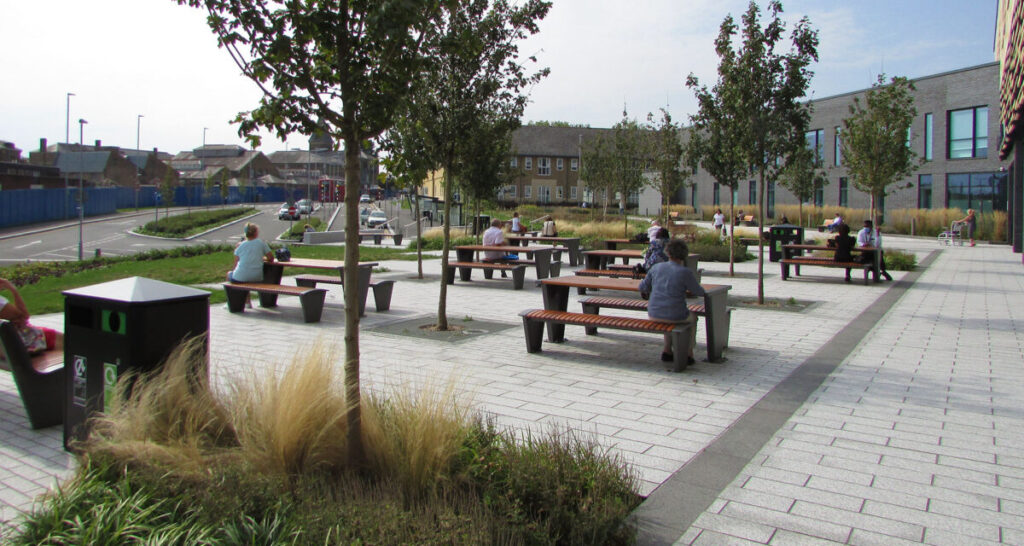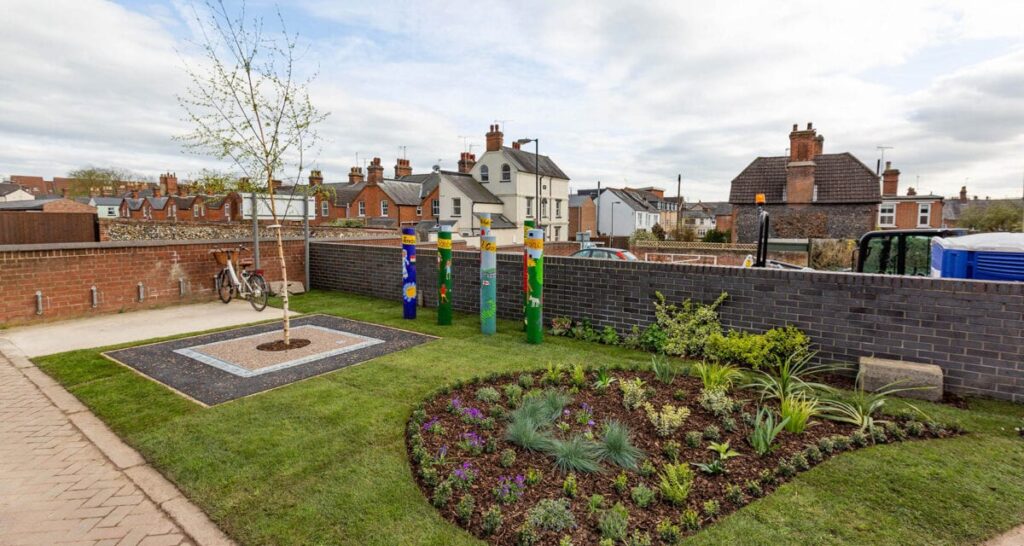Different disciplines working together from early planning is often a hot topic discussed within industry seminars and resources. However, as we all know actions speak louder than words.
Two planning professional bodies that require a close working relationship from the outset are Drainage Engineers and Landscape Architects as design work and strategy co-exist in the context of SuDS design. Water and Drainage Engineers have a thorough understanding of the connection between soil and water. Comparatively, the Landscape design focuses on creating aesthetic key landmarks that look to achieve an outstanding healthy environment for all who work and play within.

We first need to understand how the different disciplines were trained during their educational courses before moving into the workings of the larger schemes. Much of our research shows that however linear the training is, the job roles and ways of working are actually very different. Landscape Architects have been educated to focus not only on the function but also on the look and feel and how the community engage with a project. Placemaking is a key focus for landscape architecture. Alternatively, an Engineers’ training is to find the most efficient, cost-effective and functional solution to a problem.
In the words of Anthony McCloy of McCloy Consultants,
“Let’s avoid missed opportunities and have maximum benefits, producing high-performance infrastructure”.
Let’s address the ultimate question; how can we adopt a mind-shift by allowing a multi-disciplinary way of working together?
A paradigm shift in thinking leads to changes in practice
The drainage system is an integral part of any structure, and before any architect plans are drawn and construction begins it is vital to look at the existing drains and potential natural SuDS features, dependant on the Topography. Therefore, respect and patience from all sectors are necessary throughout every stage of a project, each detail, plan and design is as important as the next. It is vital that all parties must be willing to listen to other points of view and share the same end goal;
producing a realistic, functional, and high quality visually pleasing design, catering to the client’s wishes.
Having an open mind and creative outlook on a scheme can shape a project to reach its full potential. This can only be achieved if all members of the design team are on-board with collaborative working on every phase of the project. A perfect example of a collaborative SuDS case study is All Saint’s Primary School in Newmarket, whereby Anglian Water worked directly with Atkins, West Suffolk County Council, Newmarket Town Council, fully engaging with parents, teachers, governors and of course pupils from the school.

GreenBlue has been involved in ‘round table discussions’ before, that helps the client and design team discuss plans, ideas and concerns. We personally have found this a brilliant way to communicate. We are always happy to assist if you experience difficulties in any part of the design/install process – even onsite to ensure specified products are installed correctly.
Trying to convince Contractors and Engineers to move away from conventional wisdom and adopt better solutions! Love your products, systems and solutions. AJM Landscape Architects
We encourage our industry colleagues to have open conversations from the very start of a project. We truly believe you will be pleasantly surprised at how collaborative working will not only have a productive outcome on your designs but also allow the project to be completed to the highest standard that all can be proud of for many years to come.

